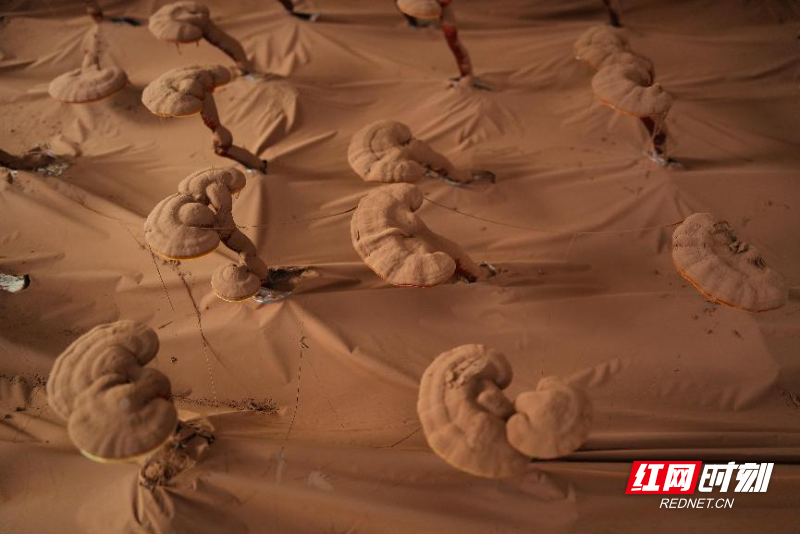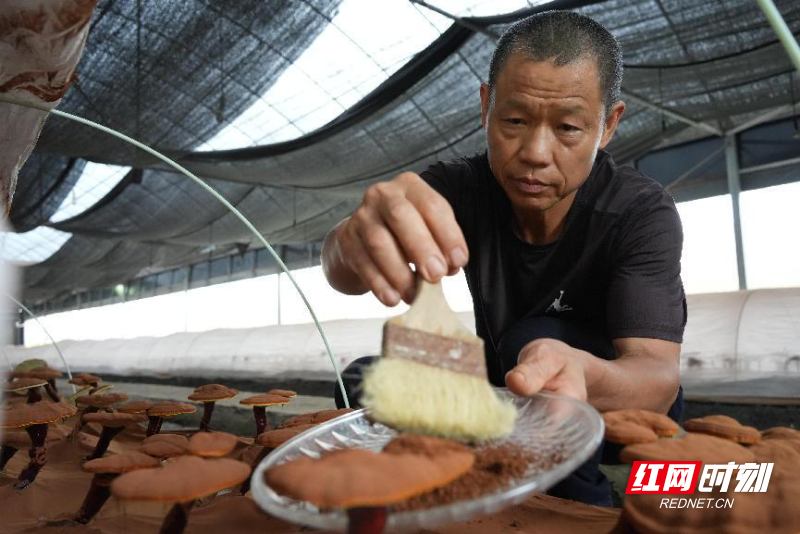Workers busy harvesting GLS
2024-06-30
In recent days, workers were busy harvesting ganoderma lucidum spores (GLS) at the Yongxie Planting Professional Cooperative in Xiatang Village, Meitian Town, Yizhang County.
The planting greenhouses are neatly arranged in the base, and various shapes of ganoderma lucidum are reddish brown, like colorful clouds on the planting beds.

“We harvest ganoderma lucidum spores every ten days or so, and the harvest can last for two months. About 40 to 50 grams of spores can be collected from each plant,” said Kuang Jiufu, an agrotechnician. Ganoderma lucidum spores can be widely used as raw materials in cosmetics, health products, traditional Chinese medicine and other fields, with broad market prospects.
Spore is a type of seed released during the later stage of Ganoderma lucidum. When concentrated, it becomes a powder and is commonly known as GLS. The collected GLS needs drying, shell-breaking and other processes before it can be sold on the market.

In recent years, the Yongxie Planting Professional Cooperative, relying on the local good natural resources, has built more than 30 standardized ganoderma lucidum planting greenhouses, with a total of more than 50 mu (about 3.33 hectares), and planted more than 100 mu (about 6.67 hectares) of ganoderma lucidum in a simulated wild environment. It is expected to produce an average of 50 kilograms of spores and 200 kilograms of ganoderma lucidum per mu (about 0.067 hectares), with a production value of over 200,000 yuan. The development of the industry has provided jobs for 100 local villagers.
“With the improvement of people’s living standards, more and more people are paying attention to health preservation. Although the GLS has not been fully harvested yet, several health products and traditional Chinese medicine processing factories have expressed their hope to reach long-term cooperation agreements with us,” said Huang Fenglan, chairman of the cooperative.




